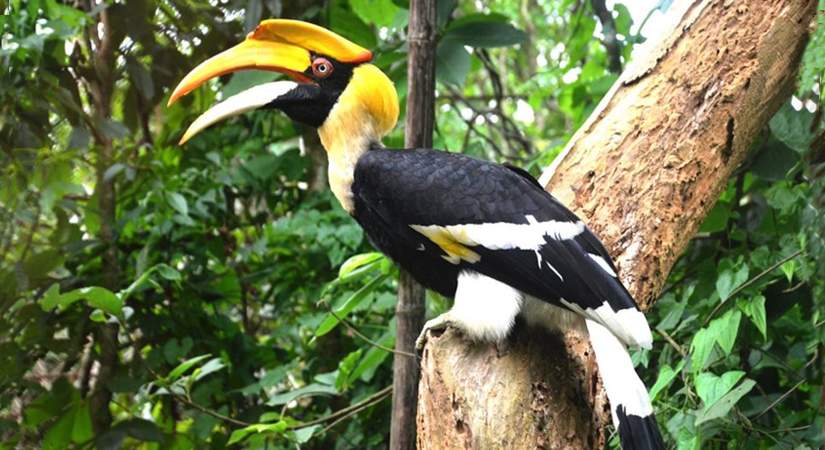It’s now more than clear that pandemics are the result of severe loss of biodiversity. While the world and India will put all their might for regaining economic growth once the pandemic subsides, shouldn’t they also simultaneously plan for restoration and enhancement of biodiversity? Blue chips Amazon, Google, Microsoft already have big plans. What can India companies do more?
The outbreak of the Corona pandemic has again reinforced the fact that the more severe the destruction of biodiversity greater and frequent pandemics become. Scientists have established the fact that Ebola outbreak in West Africa was the result of deforestation, leading to closer contact between humans and wildlife. The avian flu was linked to intensive poultry farming and the Nipah virus resulted from the intensification of pig farming in Malaysia.
Also, the Middle East respiratory syndrome (MERS), sudden acute respiratory syndrome (SARS), West Nile virus, Zika virus and now COVID-19 all trace back to the interaction of humans and critters. The U.S. Centers for Disease Control and Prevention estimates that three-fourths of “new or emerging” diseases that infect humans originate in non-human animals. Bat-associated viruses, thought to be the cause of the latest coronavirus, emerged from the loss of bat habitat from deforestation and agricultural expansion.
The World Economic Forum (WEF) recently noted that the world has lost 60% of all wildlife in the last 50 years while the number of new infectious diseases has quadrupled around the same period. A recent analysis by consultancy PwC found that $44 trillion of annual economic value generation is moderately or highly dependent on Nature and the services it provides. That’s roughly half of global GDP, of $87 trillion in 2019.
WEF also noted, “As nature continues to deteriorate, businesses progressively run more risk. This risk is not only reputational and legal — as more consumers and governments become aware of and act on Nature loss. It is also operational and financial — as direct inputs disappear and ecosystem services, on which businesses depend, stop functioning.”
Amazon, Google, Microsoft

A World Economic Forum report earlier this year titled “Nature Risk Rising” (PDF), produced in collaboration with consultancy firm PwC, offered four key actions for a business response to nature risk, covering governance, strategy, risk management and metrics and targets.
WEF points out that new technologies have the potential to accelerate a shift towards a ‘nature-positive development path’ and unlock Nature’s value while minimizing resource use. It shows the power of artificial intelligence, satellite imagery and drones to automatically detect land-use changes or monitor and control invasive species and diseases in ecosystems.
Global businesses are beginning to show their resolve in preserving biodiversity more seriously. A number of partnerships are being built so that the impact can be much greater. One example is One Planet Business for Biodiversity, a coalition of nearly 20 of the world’s largest food, beverage and personal care companies that have pledged to build a more sustainable food system.
There’s also Crop Trust, a Germany-based organization that has developed 27 crop conservation strategies — including for apples, coffee, fava beans, wheat, coconuts and strawberries — to provide blueprints of the current and ideal conservation status of crop diversity collections.
Microsoft recently launched an ambitious initiative to support global biodiversity. It calls for creating a “Planetary Computer” to rapidly assess, monitor and manage natural ecosystems data using artificial intelligence. Google and Amazon have invested in cloud resources and artificial intelligence platforms with similar missions.
What Can India Do?
What’s is the message here for Indian policy makers, both central and states, and businesses? Setting up of the National Biodiversity Authority in 2003 showed India’s serious resolve in addressing the biodiversity loss issue. The India Biodiversity Portal (https://indiabiodiversity.org/) is a rich repository on biodiversity hotspots. It looks like it needs serious funding support.
- There’s excessive focus on biodiversity of large animals, particularly tiger and rhino, a clear strategy is needed to enhance biodiversity of insects, plants, small animals in risk-prone areas.
- Indian businesses could collaborate with National Biodiversity Authority to enhance its effectiveness and impact, it looks more like a bureaucratic body.
- Earmark a percentage of CSR funding for enhancing biodiversity as government funding is meagre for advocacy
- Make Sustainability Reporting mandatory for firms above Rs. 10 crore turnover. In this report make a section on biodiversity impact report mandatory. Currently only top 100 listed companies are encouraged to file sustainability reports.
- Businesses can generously support NGOs who not only work in this space but also with tribal communities.
Want to add more to this list? Pl share in the comments section below.
Feature Image Credit – Markus Spiske









